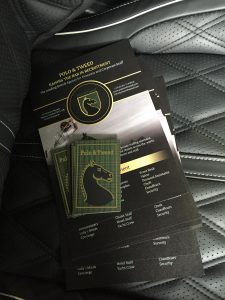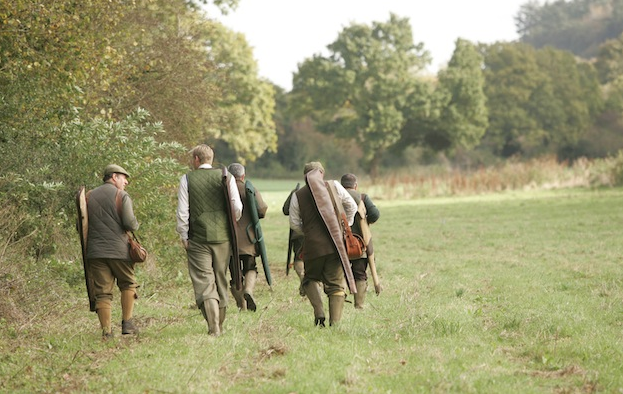Etiquette is a fundamental skill, both theoretically and practically, that any discerning Butler must obtain in order to progress in his or her career. A human being makes a first impression within a few seconds of seeing, meeting or entering a location, so the way a Butler interacts and presents themselves to the highest level of precision is key to their craft.
Etiquette is not just reserved for the service industry, from CEOs through to Headmasters, from politicians through to air host(esses), the etiquette and interaction of yourself between the client is hugely important. An experience can be destroyed by incorrect etiquette, and even worse, you can seriously insult someone. So it is vital that you know your etiquette!
So what options exist for Butlers or those in the hospitality industry looking to obtain an Etiquette certificate?
Research Training Options
The form of etiquette you are looking to obtain will depend on which service training provider you approach. As a Butler, you will be well suited to seeking out training schools which focus on service, from hospitality schools through to private training providers.
Do you need specific etiquette training in service at the table or general etiquette training? Do you need etiquette training for domestic homes or for 5* hotels? Whatever the case is, look to find a specific training provider.
What to Expect from the Training
Depending on the training provider you decide to undertake your training with, the length of the course may vary. Our etiquette training can be broken down into different etiquette applications. For example, Housekeeper Etiquette through to Service Etiquette, Front Desk Etiquette through to Concierge Etiquette. The area the Butler is looking to develop etiquette skills in is the area we will focus the key etiquette modules on.
One main thing to look out for when choosing your training is the level of practical learning during the course. Physically ‘having a go’ at learning new techniques is vital to becoming qualified in any skill, especially if you want the training to have a positive outcome.
At the end of each course, there should be some form of an examination (written and practical) specific to each student, as well as time for feedback from the trainer. Any comments, tips and constructive criticism at the end of the course should be noted down so the student can revisit these points, practice, fine-tune and reflect.
Bespoke Etiquette Training
We often get asked to provide a bespoke training course. This simply means that you can pick and add any modules you like from across all our training services, and in this way create a course exactly to your needs and requirements. We cover every skill required in Etiquette, including cultural etiquette, personal presentation, hygiene, body language, housekeeping etiquette and service etiquette.
Some clients might need specific types of etiquette modules and focus points. Perhaps the hotel is opening a high-end property in the Middle East and require their staff to be trained in Middle Eastern customs. The staff can be taught the correct etiquette and form required.
Skills Learnt During Training
During all forms of Etiquette training, two major skills are learnt. Firstly the theory – the history, background and ground rules of the practice. Secondly, but by now means less important, is the practical skill set. After observing the trainer during the training course, and studying the theory in the module book, then it is time to actually implement all that information and put it into practice. This is by no means easy but practice makes perfect!
To complete and conclude the training, a written and practical assessment will be presented to the student to complete, whilst the trainer will continually monitor the progress of the newly learnt skills.
 How is the Training Course Taught?
How is the Training Course Taught?
At the Polo & Tweed training, we use a wide variety of tried and tested teaching methods and a system to complement the teacher. As well as teaching notes, the trainer will use power point presentations to demonstrate theoretical knowledge to complement the module handbook. The powerpoint presentation contains fun videos and interactive elements to keep everyone on their toes, visualise and stimulate the student.
Besides this, a lot of time is spent on the practical side of learning these new skills. The students are on their feet during the course, learning body language, how to walk, sit, stand, how to announce guests etc. From understanding how and when one should shake a guests hand through to accepting tips.
Last but not least, the trainer will go through a range of scenarios to further practice real-life situations. There are also optional field trips which can be added into some training courses as per the clients or students requirements.
To conclude, the course is finalised with a practical and written exam to test and demonstrate that the student has absorbed and retained the newfound information.
Digital Handbook
Before the start of the training, all students will receive a digital handbook for them to keep as their personal module handbook and to use for future reference. Considered a ‘bible’ of information, this is a digital handbook so ideal for use on a tablet, laptop or smartphone, making it extremely accessible for the students should they need it for future reference. It is considered a very helpful and valued handbook which is cherished by course participants.
Etiquette Course Trainers
The trainers at Polo & Tweed are experienced in teaching and passing on their knowledge and passion, and have worked for many years in the profession. They use this longstanding experience and knowledge gained throughout the years to provide a comprehensive, professional and accessible learning experience, encouraging group discussion and practice whilst focusing on developing new skills and knowledge.
Find out more
We’d love to hear from you if you are interested in learning more about our Etiquette Training for Butlers. Why not drop us a line and one of our training consultants will get back in touch with you.


